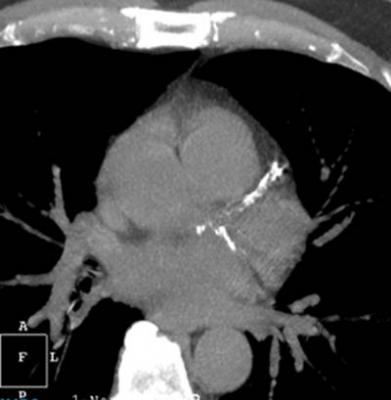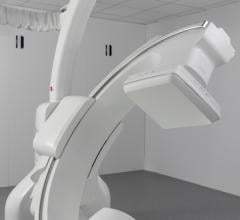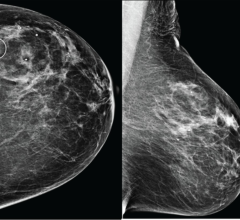
April 25, 2018 — HeartFlow Inc. announced that the National Health Service (NHS) England has chosen the HeartFlow FFRct (fractional flow reserve computed tomography) Analysis as part of the Innovation and Technology Payment (ITP) program. The HeartFlow Analysis was chosen as a new technology to be funded by ITP through a competitive process of nearly 300 applicants. It is the only ITP recipient focused on coronary artery disease (CAD), which affects 2.3 million people in the U.K., according to the British Heart Foundation.
The goal of the ITP is to create the conditions necessary for proven innovations to be adopted faster and more systematically throughout the NHS. Through a competitive process, NHS England identified innovations where financial or procurement barriers were preventing widespread adoption, despite strong evidence that broader adoption would deliver efficiency and improve quality in healthcare. NHS England will provide reimbursement for usage of these technologies through the ITP program to support their adoption throughout the NHS.
The ITP designation for the HeartFlow Analysis follows medical technology guidance issued by the National Institute for Health and Care Excellence (NICE) in February 2017. The guidance recommended the HeartFlow Analysis as the most cost-effective option following a coronary computed tomography angiogram (CTA) when additional information is needed by the clinician for patients with stable chest pain. Additionally, NICE clinical guidelines recommend coronary CTA as the initial diagnostic test for most patients with stable chest pain.
“For patients being assessed in a chest pain clinic with new onset chest pain, the most important focus is to first provide an accurate diagnosis as quickly as possible. It is ideal if we can avoid unnecessary invasive procedures, like angiograms, or prevent having to do multiple tests, one after the other. Most patients don't actually have angina and so being able to reassure patients and avoid unnecessary tests is also really important,” said Andrew Wragg, M.D., consultant cardiologist, Barts Heart Centre. “Using the HeartFlow Analysis at the Barts Heart Centre helps us understand if a patient has a significant narrowing within their heart blood vessels by assessing its impact on the actual blood flow to the heart muscle. This enables us to make a more precise diagnosis and offer the most appropriate treatment. Many patients don’t require any extra tests and can be reassured. Other patients can be correctly identified for more invasive treatments. Also, the time to diagnosis is shorter and combined with avoiding unnecessary tests, this can potentially lead to important cost savings for both the hospital and wider healthcare system.”
Clinicians diagnosing someone with suspected CAD want to know as definitively as possible if the individual has a significant blockage in their coronary arteries. They also want to know the impact of that blockage on blood flow so they can best determine which treatment pathway is appropriate (e.g., medical management, stenting or coronary artery bypass grafting).
Data from a patient’s non-invasive coronary CTA are securely uploaded from the hospital’s system to the cloud. HeartFlow leverages deep learning to create a personalized, digital 3-D model of the patient’s coronary arteries. The HeartFlow Analysis then uses powerful computer algorithms to solve millions of complex equations to simulate blood flow and assess the impact of blockages on coronary blood flow. The HeartFlow FFRct Analysis is provided via a secure online interface to offer actionable information to enable clinicians to determine the optimal course of treatment.
This technology has been demonstrated to reduce unnecessary and invasive diagnostic coronary angiography procedures, which can be associated with bleeding, stroke, major blood vessel damage and other serious complications. It also significantly reduces healthcare costs for hospitals.
For more information: www.heartflow.com


 February 06, 2026
February 06, 2026 









